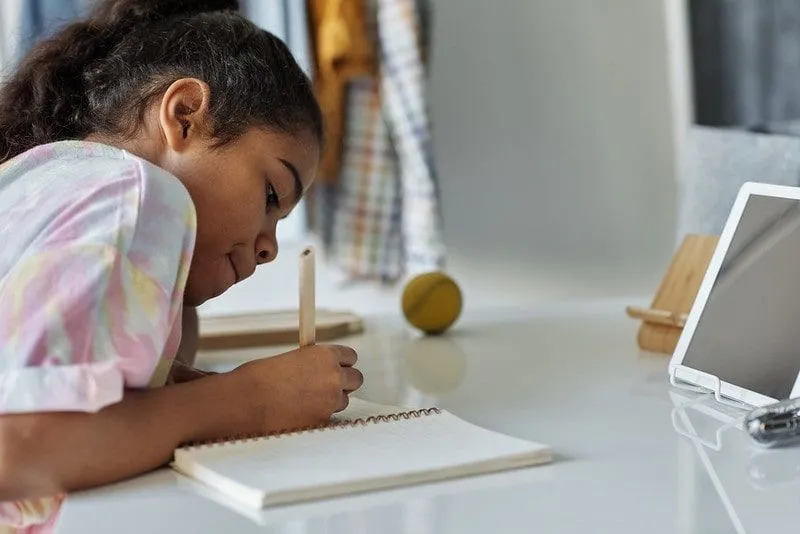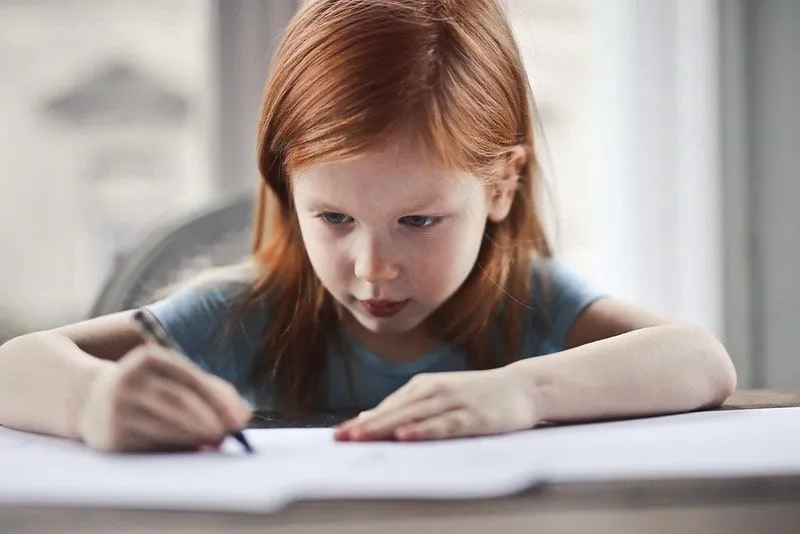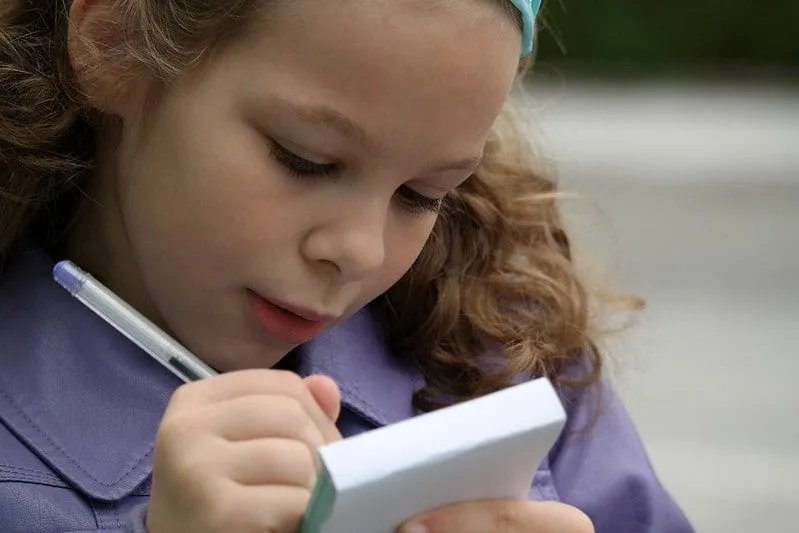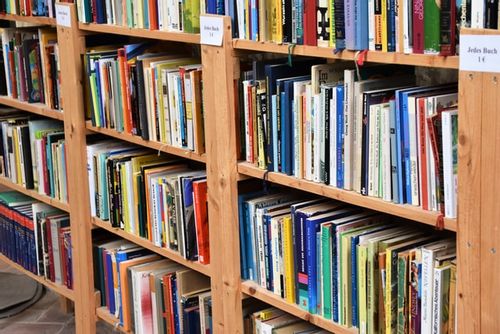FOR ALL AGES
Learning to spell is one of the key skills your child will be taught during the primary school years.
You can support your child's learning at home by becoming familiar with what the curriculum expects your child to cover in Year 3, including knowing the list of spelling words that will be introduced. Below, we've covered everything you need to know to help your child with spelling through this year and next.
Beginning with this school year and continuing into Year 4, the National Curriculum requires your child to learn how to spell a list of 100 words. So, do not worry if your child isn't spelling them all perfectly by the end of Year 3.
Children are taught to spell using phonics. Phonics can be thought of as 'sounding a word out'. So, for instance, the word 'zoo' is made up of 'zah' (z) and 'oo'. This is how your child will have been taught since the Reception year and as they move up through the years, what is known as the International Phonetic Alphabet (IPA) continues to be used to learn spelling rules. This is handy to know when you're helping your child spell new words at home.

The following is the Year 3 and Year 4 spelling list of words children will be expected to begin to learn to during this school year.
accident(ally)
actual(ly)
address
answer
appear
arrive
believe
bicycle
breath
breathe
build
busy/business
calendar
caught
centre
century
certain
circle
complete
consider
continue
decide
describe
different
difficult
early
earth
eight/eighth
enough
exercise
experience
experiment
extreme
famous
favourite
February
forward(s)
fruit
grammar
group
guard
guide
heard
heart
height
history
imagine
increase
interest
island
important
island
knowledge
learn
length
library
material
medicine
mention
minute
natural
naughty
notice
occasion(ally)
often
opposite
ordinary
particular
peculiar
perhaps
popular
position
possess(ion)
possible
potatoes
pressure
probably
promise
purpose
quarter
question
recent
regular
reign
remember
sentence
separate
special
straight
strange
strength
suppose
surprise
therefore
though/although
thought
through
various
weight
woman/women

Alongside these words, your child should also be learning the following spelling rules this year:
To put an apostrophe after the 's' when it's added to make a plural word possessive. For example: boys', girls', babies'. If a word is already plural, the apostrophe comes before the 's'. For example: children's, men's, women's.
Getting to grips with suffixes. These are the letters added to the end of words that expand their meaning. For example: -ly, as in actually; -ing, as in interesting; -er, as in builder; -ed, as in answered, -ation, as in consideration.
To add a double letter before a suffix (as in preferred, forgetting, beginner) to words with more than one syllable.
Some IPA sounds are less straightforward and it's best to let your child learn these as they arise, though they need to be introduced. For instance, when 'y' turns up in the middle of words, as in myth and mystery. Other 'sound' rules to teach are 'ou', which sounds a bit like 'ah', when it's in words such as young and touch.
Prefixes, that is, the letters added to the beginning of words which change their meaning, usually to an opposite. These include un-, as in unhappy; mis-, as in misunderstood; dis-, as in disappear and in-, as in incorrect.
The National Curriculum requires the following rule-breaking letter combination sounds to be taught at this stage, too: when 'ch' sounds like 'k', as in scheme; when 'ch' sounds like 'ch', as in chief; when words end with -que, but sometimes sound like 'k' as in unique and sometimes 'g', as in tongue.
The following spelling rules must also be learned:
That 'sc' together creates the sound for science and scene.
That 'ei', 'eigh' and 'ey' all make the same sound, as in eight, weigh, they.
Word endings that sound similar: -cian, -sion, -ssion, -tion.
Finally, Year 3 children need to start to become familiar with homophones. These are words that sound the same, but are spelled differently, such as great/grate, here/hear, where/wear.

At home, always have your child write the Year 3 and 4 spelling words they need to learn. The physical act of writing, rather than typing, helps to reinforce learning spellings. Ask your child to write a story and help them to sound out unfamiliar words. Give them a highlighter pen to highlight any words they're not sure of, then have them look up the word in a dictionary to check.
Word games, like hangman, are useful, as is asking them to make up silly sentences to write down. Tell them they can only use words from the Year 3 and Year 4 spelling list.
Give your child plenty of opportunities to practise, including having them say the spellings out as they write them. Ask them to write your shopping list, a letter to Grandma or keep a diary of what they've done each day.
Read The Disclaimer
At Kidadl we pride ourselves on offering families original ideas to make the most of time spent together at home or out and about, wherever you are in the world. We strive to recommend the very best things that are suggested by our community and are things we would do ourselves - our aim is to be the trusted friend to parents.
We try our very best, but cannot guarantee perfection. We will always aim to give you accurate information at the date of publication - however, information does change, so it’s important you do your own research, double-check and make the decision that is right for your family.
Kidadl provides inspiration to entertain and educate your children. We recognise that not all activities and ideas are appropriate and suitable for all children and families or in all circumstances. Our recommended activities are based on age but these are a guide. We recommend that these ideas are used as inspiration, that ideas are undertaken with appropriate adult supervision, and that each adult uses their own discretion and knowledge of their children to consider the safety and suitability.
Kidadl cannot accept liability for the execution of these ideas, and parental supervision is advised at all times, as safety is paramount. Anyone using the information provided by Kidadl does so at their own risk and we can not accept liability if things go wrong.
Kidadl is independent and to make our service free to you the reader we are supported by advertising.
We hope you love our recommendations for products and services! What we suggest is selected independently by the Kidadl team. If you purchase using the buy now button we may earn a small commission. This does not influence our choices. Please note: prices are correct and items are available at the time the article was published.
Kidadl has a number of affiliate partners that we work with including Amazon. Please note that Kidadl is a participant in the Amazon Services LLC Associates Program, an affiliate advertising program designed to provide a means for sites to earn advertising fees by advertising and linking to amazon.
We also link to other websites, but are not responsible for their content.
Was this article helpful?



Browse Category



We’ll send you tons of inspiration to help you find a hidden gem in your local area or plan a big day out.



Check your inbox for your latest news from us. You have subscribed to:
Remember that you can always manage your preferences or unsubscribe through the link at the foot of each newsletter.